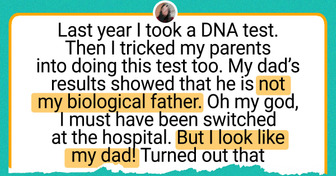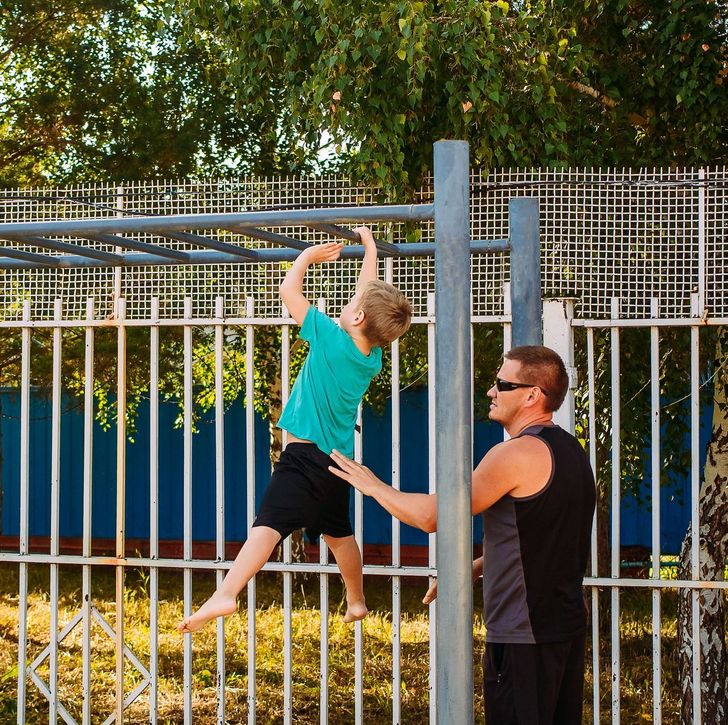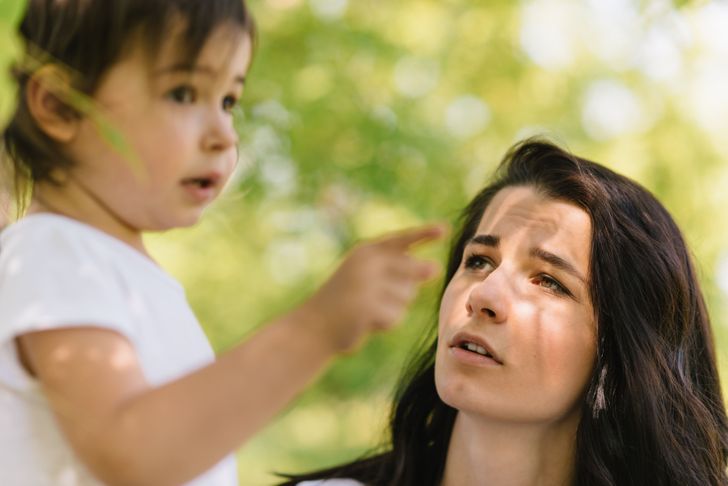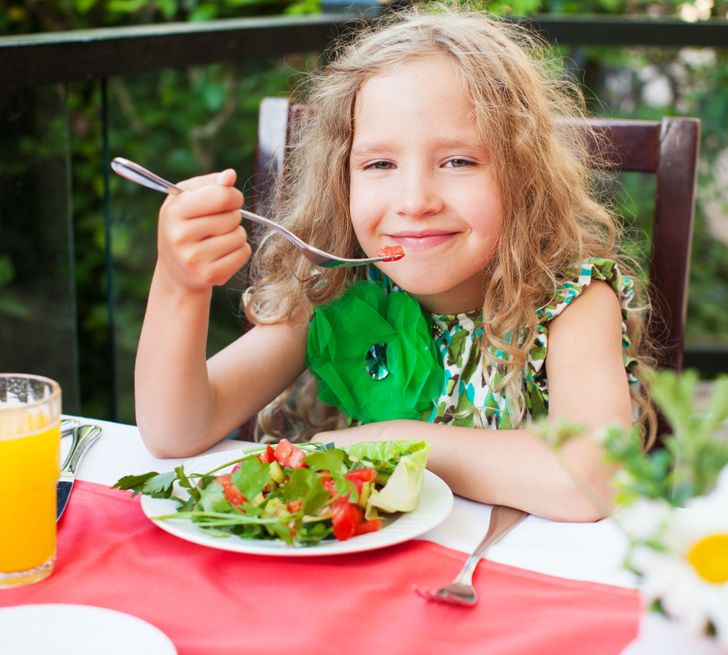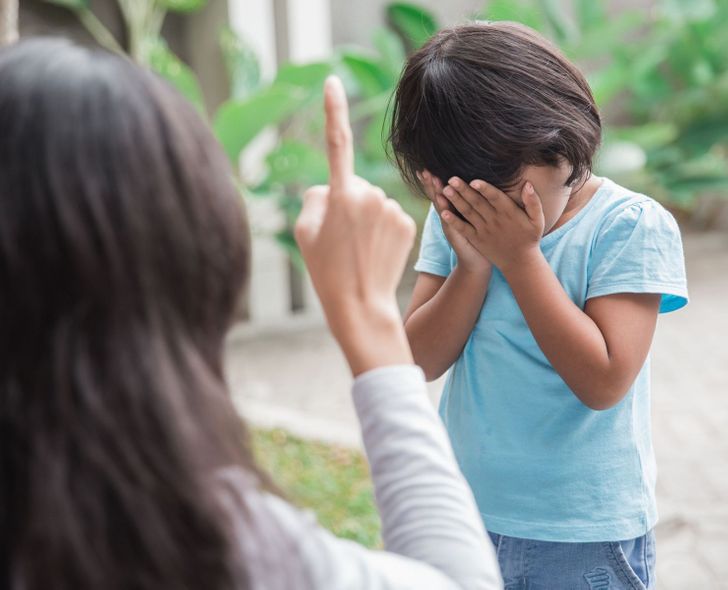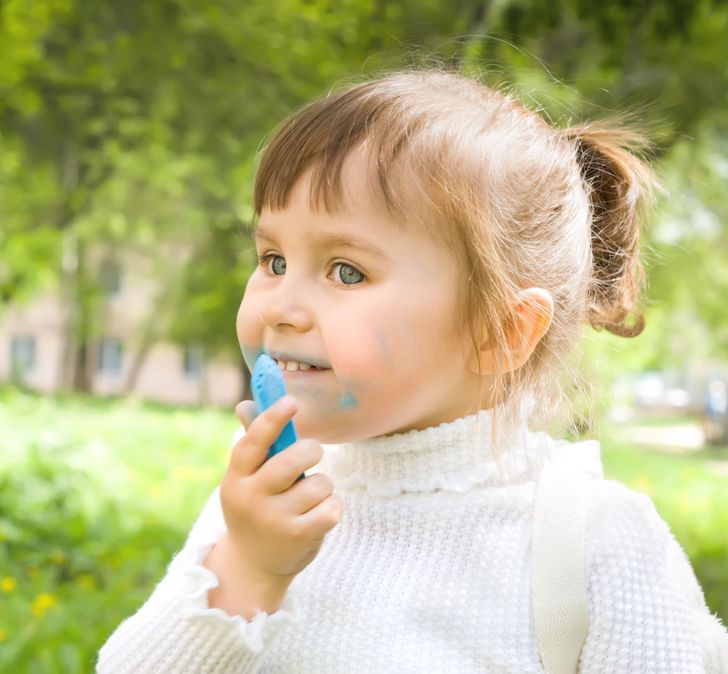I tell my kids they are beautiful on the inside, where it counts.
13 Phrases Parents Use That Can Push a Kid to Seek Therapy in the Future
Within the last decades, parents have started to spend more time with their kids. This means that modern mothers and fathers approach the question of their child’s upbringing more responsibly and this fact makes psychologists and teachers happy. But even the most responsible parent is not completely protected from mistakes. For example, using random and not-well-thought-out phrases can affect a kid’s mental well-being.
We at Bright Side dove deeper into the topic of child psychology and made a list of phrases that can negatively affect children, even if their parents don’t mean it.
“You are so beautiful!”
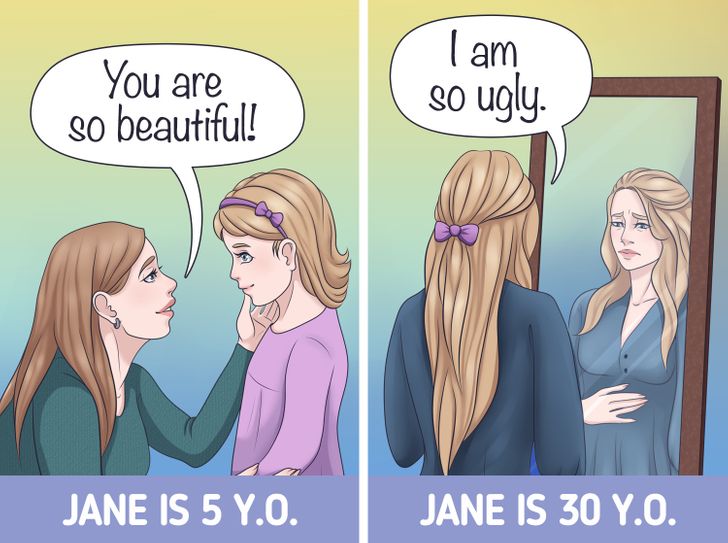
Psychologists recommend not focusing girls’ attention on their beauty. When growing up, a kid might end up thinking that appearance is all that matters and they might dwell on small imperfections. Eventually, they can develop a bunch of complexes and lose precious time, which could be used for self-development and creativity.
“I was scoring 100 goals when I was your age!”
Comparisons that are not in the kid’s favor are always painful for them. Moreover, when they are compared not with some neighbor or uncle, but with their own parents who are the kid’s ideal adults, the offense gets even bigger.
Constant comparisons stress the kid out, lower their self-esteem, and can even become the reason they may distance themselves from their parents.
“No-no, don’t go there! It’s dangerous!”
Anxiety and worrying about their offspring is a normal thing for parents. However, the wish to protect their baby from literally everything and being overprotective can cause “Peter Pan Syndrome” in the child. Usually, people above 30 suffer from it (most often they are men): they refuse to grow old, they are infantile, inconsistent, and emotional like kids. It’s hard for these people to build a family, they don’t want to have kids and take responsibility for themselves.
“Of course, yes!”
It’s extremely hard to say “no” to your kid, but always pleasing is sometimes worse than a refusal. Permissive parenting eventually does a disservice to all the members of this process. A study conducted by scientists showed that all-permissiveness is an indirect cause for a kid to end up hanging out with the wrong crowd, where being influenced by their new acquaintances, a kid might get in trouble and even commit a crime.
“You are much better than...”
Kids believe the things adults tell them. That’s why you shouldn’t overly admire your offspring and convince them of their exceptionality, even for motivational purposes. By doing this, parents can grow their own personal narcissist.
“I told you!”
Boasting that you knew the outcome of your child’s idea won’t do any good to your kid. They should know using their own experience that riding a bike requires focus and carefulness and that clothes become wet and cold if they jumps in puddles in them. Instead of demonstrating that you are aware of the consequences, praise the kid for making the right decisions and overcoming difficulties.
“I was brought up this way and I grew into a normal person.”
The parenting methods our mothers and fathers used gave us a guide to action. But that doesn’t mean we need to bring up our kids the same way. It’s more important to understand the needs of your kid than to focus on the already existing parenting algorithm. Every person is unique — you should always keep that in mind.
“I am so fat — it’s time I started dieting!”
We all sometimes suffer from attacks of low self-esteem and don’t quite see the person that we would like to see in the mirror. But for children, parents are always the best, therefore, you can not only lower yourself in your kid’s eyes but also encourage them to form the wrong attitude toward their appearance by discussing your imperfections in the presence of your child.
“Don’t eat that — you are already fat!”
When it comes to extra weight and diet restrictions related to it, it’s much better to focus on the taste and benefits of healthy eating than on the harm of unhealthy eating. “Turns out, broccoli is very tasty!” sounds much better than, “French fries do nothing but make you even fatter!” Reminding your offspring that they are overweight is harmful to their self-esteem and could cause problems with overeating in adulthood.
“I’ll leave you here!”
Oftentimes, we can hear parents say, “Ok, you stay — I am leaving!” when their offspring don’t want to go back home from a walk or elsewhere. A frequent pronounced threat to be left scares a kid, deprives them of the feeling of being protected, and can destroy their attachment to their parents as a center of safety. Instead, try to switch the attention of the disobedient little one to a nice car or offer them to count the dogs or birds that you’ll meet on your way back home.
“Don’t do it!”
Unfortunately, the phrase “Don’t do it!” doesn’t help a kid to correct their behavior. They won’t stop swinging, measuring the depth of puddles, or throwing sand. It’s better to concentrate on phrases that lack negative context and that contribute to getting the goal you want. For example, instead of “Don’t jump into that puddle!” you can say, “Go around this puddle!” and make sure to add “Please” and show it by your own example. You’ll be happy with the results soon enough.
“You are a big kid now — there is nothing to be scared of!”
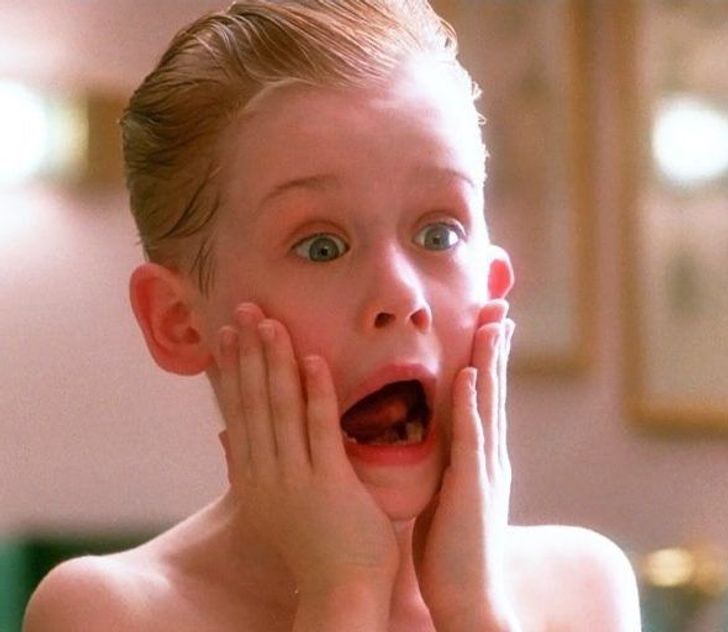
"I'm the scariest thing in my house. The monster under your bed better run for it!"
Fear is irrational and even adults sometimes feel scared of things. Needless to say, little kids are familiar with this feeling as well. Kids’ fears are diverse and sometimes seem funny to adults, but that doesn’t mean we should ignore them. A thoughtless phrase said to a frightened child shows them that they are simply unheard and that the adult is devaluing their feelings. It would be more correct to show empathy and support your son or daughter.
“Our finances are not your business.”
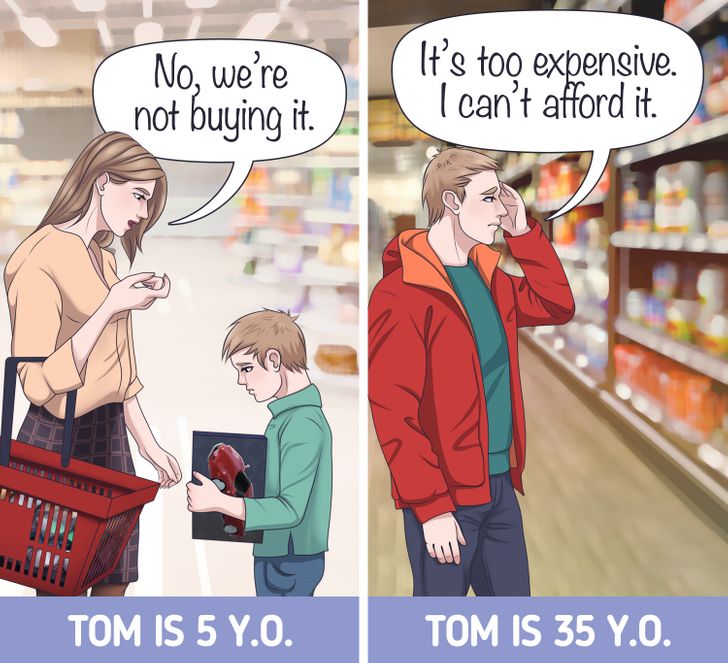
Discussing financial issues is a sensitive topic for many parents. Oftentimes moms and dads prefer to not explain why it is impossible to buy a toy or go to an amusement park. However, they should. Kids notice many things, but they can interpret the problem incorrectly and feel guilt for the lack of finances. Mistaken beliefs can follow the kid into their adult life and turn them into a workaholic who only saves money and is afraid to spend it. Or on the contrary, they can become a spender who is unable to stop wasting money.
In these cases, psychologists recommend not hiding financial issues from kids but at the same time avoiding the negative assessment of the situation and focusing on the fact that the issues are temporary and that the parents will deal with them for sure.
What phrases do you never say to your kids?
Comments
I hear these phrases except "I was brought up this way and grew into a normal person" well, my parents are narcissists...
They are certainly not narcissistic, I'm sure they may seem to be to a child, but remember that most parents love their children more then anything, it's not their fault they never saw articles like these. Narcissists are horrible people, your parents might be strict, but not that bad. Every child once feels like their parents are bad, but it's just how we see it as children. The older you get the more happy you'll be that you have them. 😊
All is parents fault. All the phrase used by ancient and all parents. Nobody goes to therapist. You spoil kids keep blaming parents as narcassist. Wait until you have your own kids. Nonsense article. Seems like nothing parents do right today. Wise parent shall not any articles todays. All is fake.
When you learn your grammar then you talk about people
okay, can you back up your reasoning? thought so.
Exactly
I NEVER tell my kids "I don't love you" When I'm upset with them. I will say "I love you, but I don't like you very much right now" when their behaviour is out of line.
what is wrong with telling your kids they are beautiful
Related Reads
10 Things Parents Do That Cause Their Children Throw More Tantrums
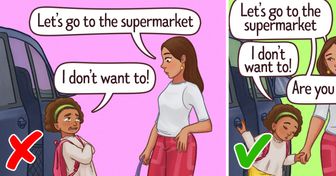
17 Stories About Mothers-in-Law Who Are Full of Surprises
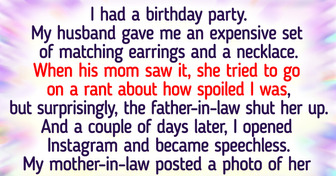
8 Upbringing Methods That Used to Be the Norm but Seem Outrageous Now
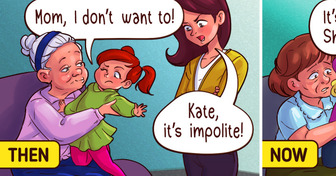
A Father Banned His Daughter From His Wedding, but She Was Not the One to Take It Easy
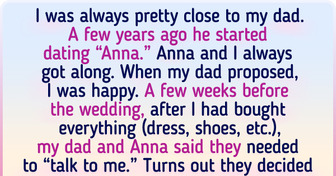
15 Seemingly Harmless Phrases From Parents That Can Echo Into Their Kids’ Future

12 Examples of When Someone Is Just Fooling You Instead of Apologizing

7 Things Parents Do That Unintentionally Push Kids Away

15+ Unusual Things That’ll Definitely Make You Say, “Why Is That There?”
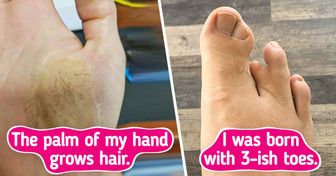
15 Secrets That Were Carefully Hidden in Popular Cartoons

10+ People Who Could Write a Novel With Their Workplace Stories
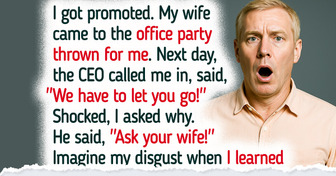
My Husband Says He Can’t Be With Me Anymore After What He Saw in a Delivery Room
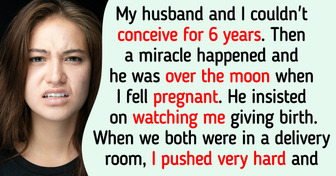
16 People Shared Secrets That They Keep Away From Their Loved Ones
